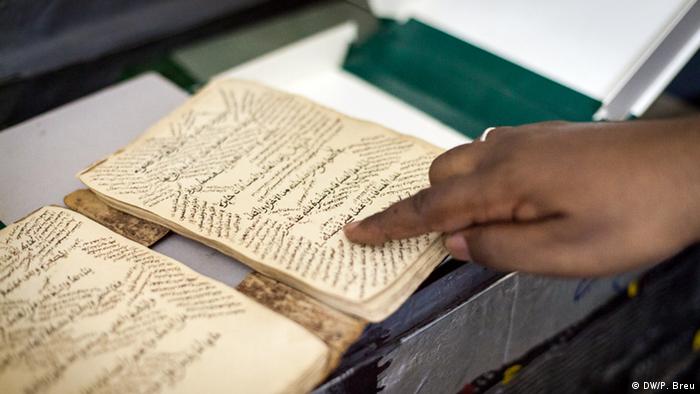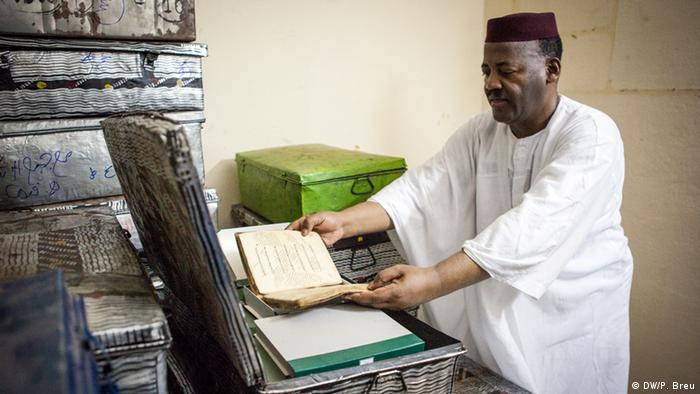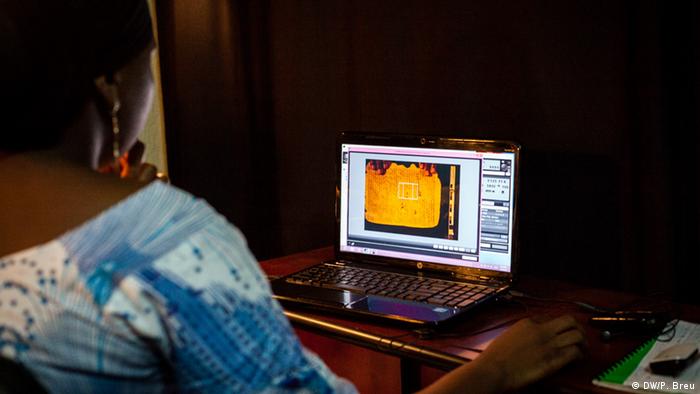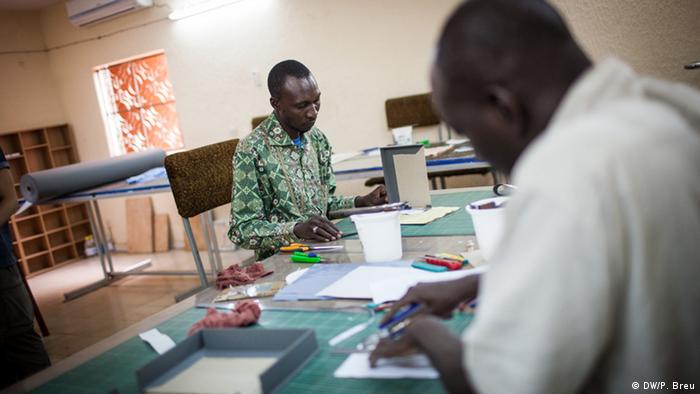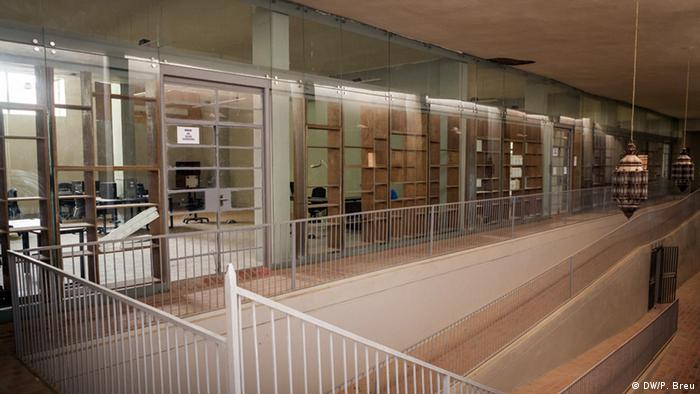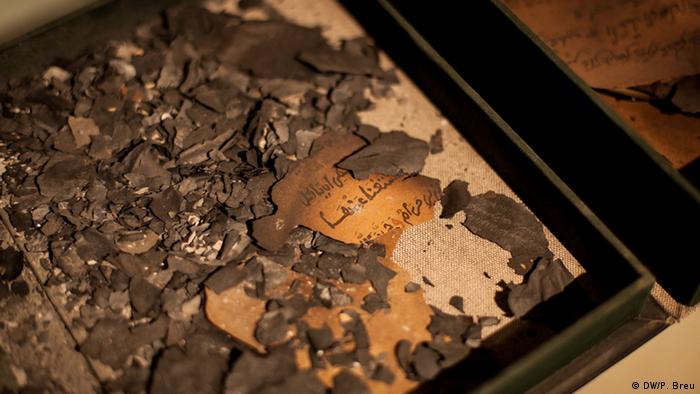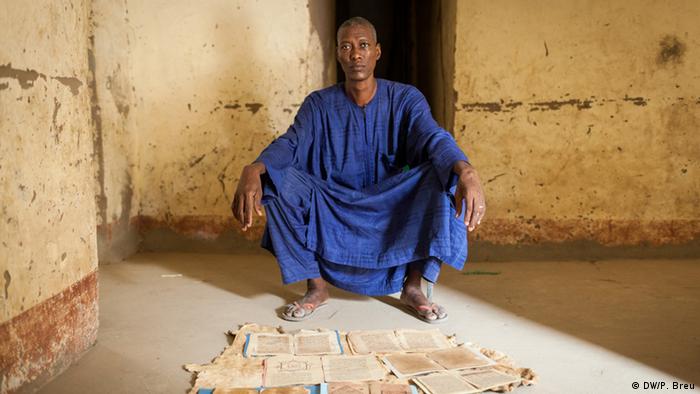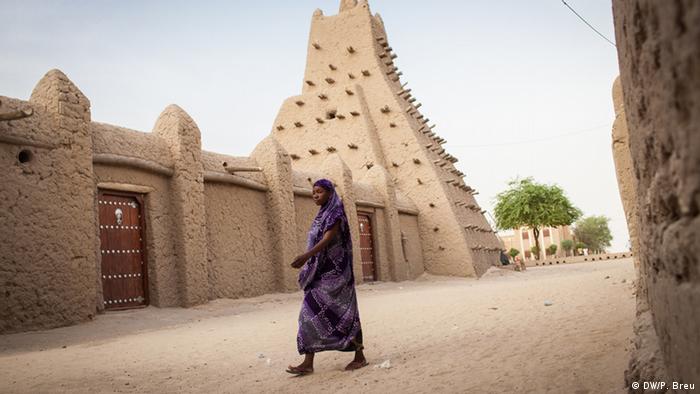One month after its latest coup, and six decades after gaining independence, it is unclear where power will ultimately lie in the country. Challenges that are as old as Mali itself are likely to continue, experts say.
It is seldom that a 60th anniversary is as inconvenient as in Mali: A month after the coup, the Sahel country seems far from political stability. On Monday, Former Malian defense minister and retired colonel Ba N'Daou was named interim president. He is to head a transitional government that will retain strong ties to the military, despite pressure to appoint civilians.
"One will have to decide whether reforms can be implemented," said Christian Klatt, a political scientist, and director of the Bamako office of Germany's Friedrich Ebert Foundation (FES)— associated with the Social Democratic Party (SDP). Since independence, Mali has been shaped by four illegitimate changes of government, Klatt told DW. Many factors influence its constant problems.

Modibo Keita, the first president of independent Mali, was overthrown in 1968
Read more: Mali's junta and opposition on diverging paths
The problem of artificial borders
Experts see the colonization of Mali as the main reason: The difficulties facing the country are a result of how territory was demarcated, says historian Doulaye Konate. "Let's not forget that the countries of Africa were constructed on borders drawn during colonial times. These lines have sometimes split communities across several countries — that created these problems," Konate told DW.
Read more: 130 years ago: carving up Africa in Berlin

The state that was formed as part of French territory at the end of the 19th Century did not take into account the linguistic, ethnic, or religious borders into consideration. Mali became part of French Sudan. In 1960, the Mali Federation, which included Senegal, gained independence.
The federation broke up shortly afterward, and the Republic of Mali has existed within its borders since September 22, 1960. After a long spell as a Marxist-oriented one-party state and national dialogue following a military coup in 1991, Mali opened itself under a new constitution as a democratic multi-party state.
Read more: Africa and France: An unfulfilled dream of independence?
The challenge of integration
For Konate, the "Balkanization" of the inter-related areas and cultures after independence, or disintegration of a complex culture into non-homogenous sections, turned into misery: "This divided Africa, on its way to independence, was already a mistake," Konate said. "We are still paying a high price for that. The African countries in which we operate now are finding it difficult to prevail."
The integration of communities torn apart and then thrown together as communities within new borders is problematic for establishing a nation-state. That concerns not only the Tuareg in northern Mali but also the ethnic groups in the south.
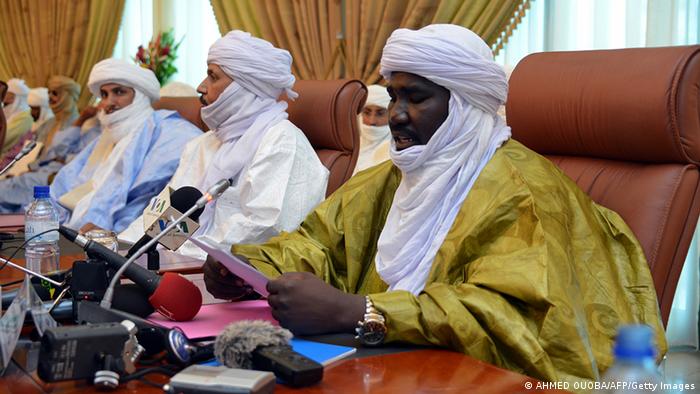
A peace deal between Mali's central government and the Tuaregs was signed in Burkina Faso in June 2013.
Christian Klatt of FES in Bamako has a similar view: Mali has over 20 million inhabitants, but the sheer size of the country makes it difficult to control. "That leads to the absence of a state in the area. We are talking about a centralized order of government with little connection between the problems of the north and south and the political center in the capital Bamako," Klatt told DW.
1963 Tuareg massacre: The starting point for revolts
Ethnologist Georg Klute also emphasizes points to the artificial construct as one of the "inherent defects" of independent Mali: "This form of the socio-political organization has been imposed from the outside by the military. A modern state, according to the Western model. The colonial power, France, endeavored to build this state. But it was not based on consensus or agreement with the population." Klute concludes that early on, the state lacked legitimacy, and the population rejected the "colonial power construct."
The political scientist Christian Klatt said disputes with the Tuareg in the north have repeatedly led to uprisings, which have consistently caused instability. "There have been several attempts to include the northern region. There are several decentralization programs."
The transitional council formed by the junta after Mali's latest coup traveled to the north to negotiate with the separatist movement. But Bamako is home to Tuareg and other ethnic groups from the north who have often had a stake in power. "To see a clear break only to the Tuareg and the rest of the country is also difficult."
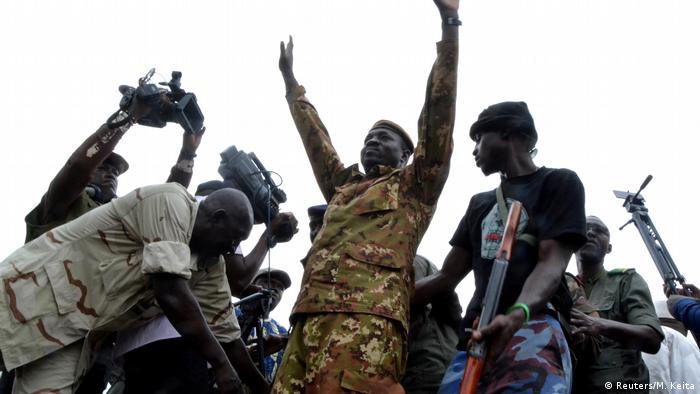
President Ibrahim Boubacar Keita was ousted by the army on August 18, 2020
Mali has experienced many revolts since independence. The origins are in the Tuareg rebellion of 1963 in the Kidal, according to the ethnologist George Klute, who has spent a long time researching in Mali. "At the time, it was brutally crushed by the military," Klute told DW.
"These experiences caused a collective trauma. Many people fled to neighboring countries, and in the 1970s, the great Sahel drought followed." According to Klute, these events formed the basis for subsequent rebellions in the region. Since 2012, the security situation has deteriorated, and even an international military intervention has achieved little.
Read more: Germany, France, Britain to keep troops in Mali despite coup
Mali remains secular
Religion plays a substantial role in Mali, a country with a majority Muslim population. There have been no efforts to make religion a factor in politics and break with the secularism of colonial times — even though one of the central figures of the opposition movement, Mahmoud Dicko, is a popular imam too.
Nevertheless, Mali is not at a crossroads between secular and religious state, according to the FES director Christian Klatt. "Imam Mahmoud Dicko has maintained that Mali is a secular state." However, he has a significant influence on its future: "I can't imagine a presidential candidate winning without Dicko's approval," said Klatt.
On the 60th anniversary of independence, the way forward for Mali is still unclear.
Bob Barry contributed to this article.
tinyurlis.gdu.nuclck.ruulvis.netshrtco.de
مقالات مشابه
- EU response to Belarus protests hampered by internal divisions
- COVID-19 حرکت آجر رنگ آميزي پیمانکار برنامه صدور گواهینامه آنلاین
- این جنوب پایتخت احساس مانند یک منطقه جنگی. در اینجا چیزی است که تغییر کرده است.
- کلاس جهانی ابزار مواد شیمیایی دکمه فشاری ساده
- خودروساز فرانسوی رنو اعلام 15,000 کاهش شغل
- 3 روز تا افزایش روشی که شما اسباب بازی
- تفاوت ریلیز با پست چیست؟ آپدیت 1401 منتوریکس
- شرکت صادرات و واردات کالاهای مختلف از جمله کاشی و سرامیک و ارائه دهنده خدمات ترانزیت و بارگیری دریایی و ریلی و ترخیص کالا برای کشورهای مختلف از جمله روسیه و کشورهای حوزه cis و سایر نقاط جهان - بازرگانی علی قانعی
- مالت خواستار پاپ را در مهاجران
- قیمت موتور زانتیا 3000 - سایت قیمت خرید هزینه
